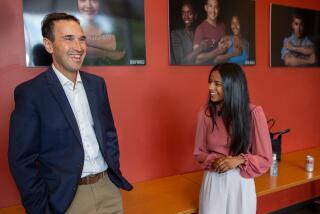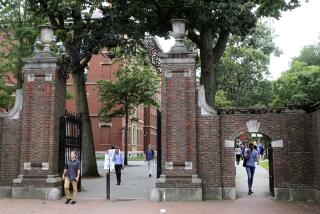Why Donât Teachers Teach More?
The education of students is the primary task for a university. Given the economic and academic-status pressures in higher education that stress postgraduate research, Stanford President Donald Kennedyâs affirmation of the importance of teaching is a forward-thinking and welcome step.
The dual charge of higher education should be of a symbiotic nature: teaching leads to scholarly research which, in turn, enhances knowledge of that which is to be taught. But in recent years, the balance has tipped too far toward research, at the expense of undergraduate studies. That does not mean that the best use of a prized researcher is to have her or him teach freshman English or introductory physics. It also should not mean that a fine teacher of English or physics is not prized.
That is the core of Kennedyâs message, one that has been endorsed by other top university officials, including Harvard Universityâs President Derek Bok and UCLA Chancellor Charles E. Young. It would seem obvious enough, but it is not. There long has been much prestige to be gained, and money earned, from research. But that may be changing. The Chronicle of Higher Education reports that major donors are now less interested in giving millions for new research buildings and more interested in giving for scholarships, professorships and âpeople-orientedâ programs. So Kennedyâs move to aim more attention on teaching may seize an opportune moment, both in the public mood and in donorsâ inclinations.
A greater emphasis on and respect for teaching could also have the corollary benefit of opening promotion avenues for African American and Latino professors--many of whom say they feel a special responsibility to remain in the classroom in an environment where there are few minority role models. A system that gave more recognition to the teaching skills of such âpeople-orientedâ professors would help universities recapture a sense of true community and refocus attention on why students go to college in the first place.






